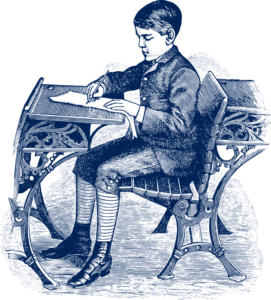Helping school students develop IL competencies
InformAll has undertaken an evaluation of a resource intended to help develop secondary school students’ information literacy competencies. The evaluation report, undertaken on behalf of the CILIP Information Literacy Group (ILG), includes some potentially valuable pointers towards making students develop a range of skills, such as research, critical thinking and problem-solving.
In February 2016, TeenTech and ILG produced this resource in the form of a set of 11 engaging, glossy leaflets that were in the first instance aimed at helping students with their assignments when entering the annual TeenTech Awards competition. InformAll undertook the evaluat ion to get a view on how the leaflets are perceived in practice. It was based on interviews, carried out between June and October 2017, with key personnel in schools that have used them; and on a survey of students.
ion to get a view on how the leaflets are perceived in practice. It was based on interviews, carried out between June and October 2017, with key personnel in schools that have used them; and on a survey of students.
The main conclusion of the evaluation is that staff and students generally view the leaflets positively; they see the material as engaging, nicely-designed – and versatile, in that many different age groups use it in practice. Although the leaflets were devised with the TeenTech Awards in mind, they have potential as an education support resource that can contribute to, enhance and enrich the school curriculum – and some schools are starting to use the leaflets for this purpose, for instance in support of Extended Project Qualification (EPQ) courses. They can give practical help for assignments and independent learning, and they may provide a grounding for academic study in higher education. The leaflets can also form part of sets of resources deployed by schools to support enquiry-based learning.
The evaluation report sets out six broad conclusions and suggestions, incorporating the points outlined above, and also relating to ways in which the leaflets might be refined and presented. Importantly, because of the resource’s potential relevance to the broader school curriculum, the evaluation provides an opportunity for engaging with education professionals beyond the library world. ILG is therefore considering how best to take forward the conclusions, not least through initiating conversations with players such as examination boards and, of course, bodies representing the teaching profession. There could thus be prospects for raising awareness and underlining the relevance of information literacy in key education sectors. ILG hopes also that such outreach can take place in collaboration with colleagues from the school library community.
![InformAll [logo]](https://www.informall.org.uk/wp-content/themes/informall/assets/img/informall-logo.svg)